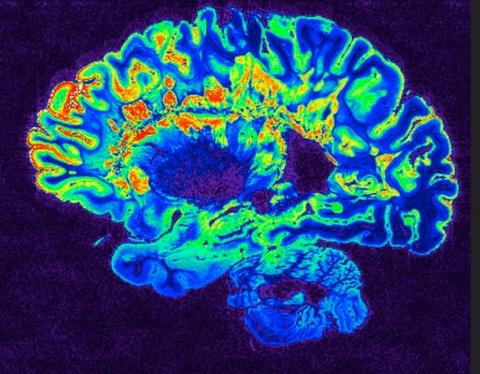Lexeo Therapeutics Scores Positive Early Data for APOE4-Alzheimer’s Gene Therapy
Dr. Johnson discusses progress regarding a new gene therapy for patients that could be impacted by Alzheimer's.
Neurology Practices Create Systems for Meeting Demand for Anti-Amyloid Therapies
Kim Johnson, MD discusses the keys to a successful rollout of new treatments for Dementia and Alzheimer's.
Johnson named Duke Centennial Trailblazer
Kim G. Johnson, MD has been named a Duke Centennial Trailblazer for her work with Alzheimer's.
Finally, Some Good News About Alzheimer's
Dr. Whitson discusses advances in Alzheimer’s prevention, detection, and treatment success.
2024 Michelle Winn Awards Celebrate Achievements in Equity, Diversity, and Inclusion
Andy Liu, MD, Kim Johnson, MD, and Burt Scott, MD, PhD were recipients of this year's Michelle P. Winn Inclusive Excellence Award.
Duke Neurology Research Round Up, January 2024
In January, members of Duke Neurology wrote and contributed to 20 peer-reviewed journal articles. This month’s research includes an article reviewing interneuron transplantation for drug-resistant epilepsy, a study on the relationship between BMI and intracerebral hemorrhage, and a study indicating that genetic associations with longevity are stronger in females than in males.
Duke Neurology Research Round Up, December 2023
The final month of 2023 saw members of the Duke Neurology Department contributing to nine new peer-reviewed journal articles. Highlights include an analysis of symptoms associated with internal tremor for Parkinson’s disease, a trio of population-level studies for stroke, and a new examination of the connections between white matter and executive function. Read short summaries of each of these articles and find links to the original research below.
Faculty Spotlight: Sharon Fekrat, MD, FASRS
Sharon Fekrat, MD, FASRS, sees the retina, the lining of the eye that translates visual signals from the eye into what the brain perceives as sight, as both a thing of beauty and a window into the rest of the body. As a member of the Duke Departments of Ophthalmology, Neurology, and Surgery, Fekrat’s work involves treating patients with retina problems as well as leading the collaboratory iMIND (Eye Multimodal Imaging in Neurodegenerative Disease) program to understand the connections between retinal health and Alzheimer’s disease, Lewy body dem
Duke Neurology Research Round Up, December 2023
What do a speech prosthetic that translates brain signals into speech, retinal scans that detect cognitive impairment, and a promising new form of genetic therapy for Parkinson’s and some forms of dementia have in common? They’re all examples of the 21 peer-reviewed journal articles authored members of the Duke Neurology Department published this November.







